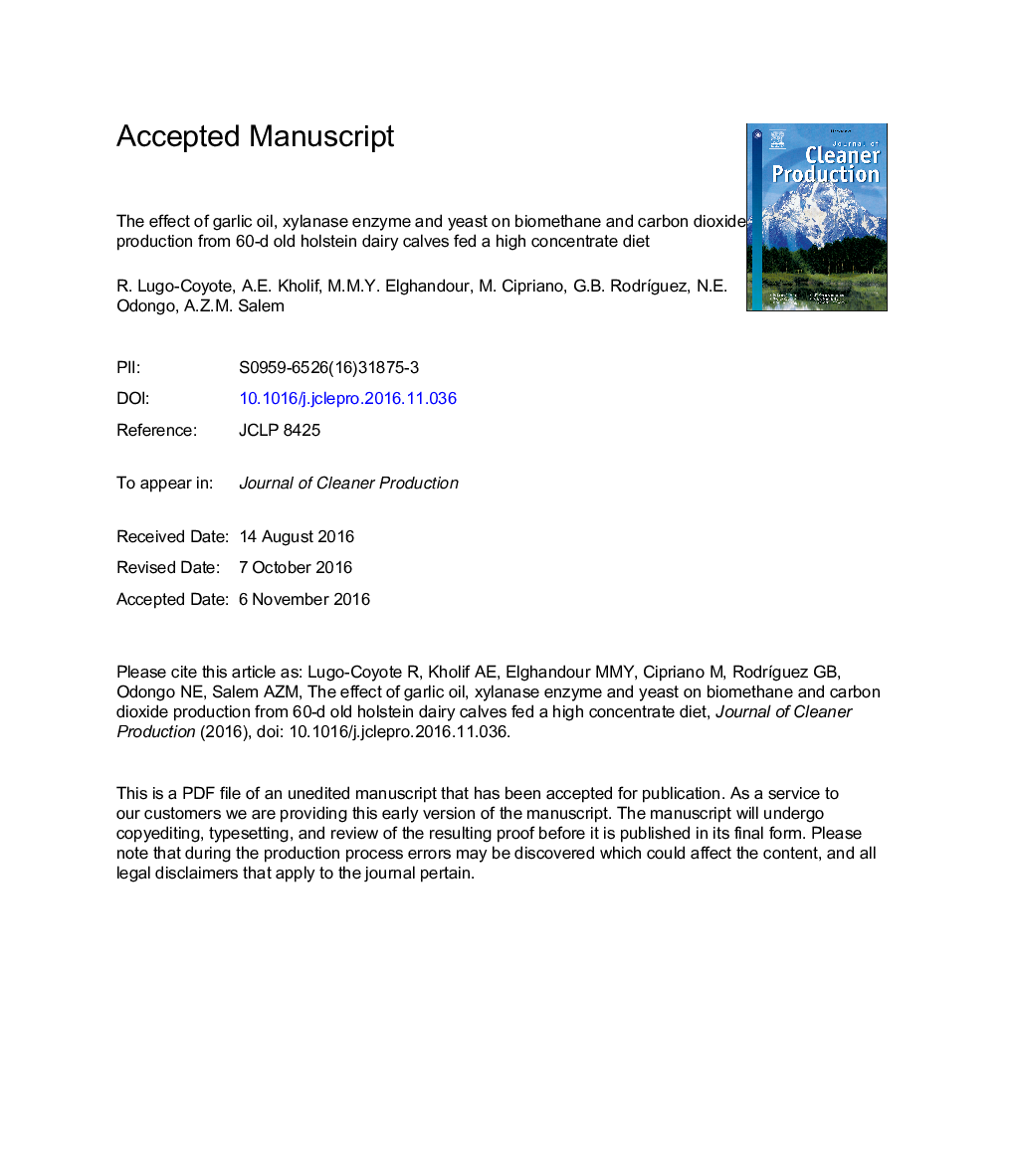| Article ID | Journal | Published Year | Pages | File Type |
|---|---|---|---|---|
| 5480409 | Journal of Cleaner Production | 2017 | 31 Pages |
Abstract
Ruminal fermentation is accompanied by production of methane (CH4) and carbon dioxide (CO2) which are greenhouse gases (GHG) that cause environmental pollution. The effect of natural feed additives on the in vitro fermentation and production of CH4 and CO2 in dairy calf has had less attention. Therefore, this study aimed to evaluate the effect of garlic oil, xylanase enzyme, and yeast on in vitro biogas production from dairy calves fed a high concentrate diet. Rumen contents from 60-d old Holstein calves fed a concentrate diet were used as inoculum source. Garlic oil was included at 30,120, 250 and 500 μL/g dry matter (DM), while xylanase was included at 3 and 6 μL/g DM and yeast at 2 and 4 mg/g DM. The substrate used was the same as the diet fed to calves. Garlic oil linearly decreased (P < 0.05) in vitro DM digestibility and there were no differences among levels of either xylanase or yeast. Garlic oil decreased (P < 0.05) DM degradability while xylanase and yeast had no effect. The lag phase was linearly increased (P < 0.05) with increasing level of garlic oil. Garlic oil quadratically decreased CH4 and CO2 production. The control treatment had the highest CH4 and CO2 production followed by xylanase, yeast and garlic oil. Increasing level of xylanase and yeast increased (P < 0.05) CO2 production. It can be concluded that garlic oil followed by yeast and then xylanase can be used to mitigate in vitro CH4 and CO2 production from dairy calves fed a high concentrate diet. However, further research is warranted to establish the efficacy of such feed additives in in vivo trials.
Keywords
Related Topics
Physical Sciences and Engineering
Energy
Renewable Energy, Sustainability and the Environment
Authors
A. Hernandez, A.E. Kholif, R. Lugo-Coyote, M.M.Y. Elghandour, M. Cipriano, G.B. RodrÃguez, N.E. Odongo, A.Z.M. Salem,
